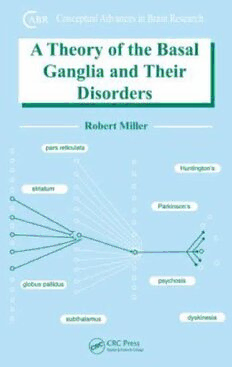
A Theory of the Basal Ganglia and Their Disorders PDF
310 Pages·2008·5.545 MB·English
Most books are stored in the elastic cloud where traffic is expensive. For this reason, we have a limit on daily download.
Preview A Theory of the Basal Ganglia and Their Disorders
Description:
The Basal ganglia, to adopt a phrase of Churchill's, are "a riddle wrapped in a mystery, inside an enigma." And although there is a wealth of information available on them, this research field remains controversial due in part to the diverse number of disciplines involved. A Theory of the Basal Ganglia and Their Disorders provides a clear, coherent view of basal ganglia that integrates evidence from the basic neurosciences, neurology, and psychiatry. The author explores the basal ganglia within a context of the function of the mammalian forebrain as a whole. Divided into two parts, the book explores the basic framework in which normal functions of the basal ganglia can be understood, and then moves on to discuss major disorders. It explains, as far as possible, symptoms and related clinical facts in terms of the underlying pathology and pathophysiology. With this goal in mind, the author includes only disorders of the basal ganglia for which there are already clear ideas about the underlying neuropathology or pathophysiology. He also conveys the human experience of these disorders as well as their scientific basis. While many books cover cutting-edge research, none have addressed large-scale questions about the role of the basal ganglia as a whole. Until now. This is arguably the only book published in the last 50 years that has attempted to provide an overall theory of the basal ganglia, as well as relevant areas of neurology and psychiatry. It concisely presents the theory, rather than comprehensively covering all the literature, and places the essential clinical facts within a framework formulated for normal operations of the basal ganglia. Presenting a unified view, the book takes several steps toward unraveling the riddle that is basal ganglia.
See more
The list of books you might like
Most books are stored in the elastic cloud where traffic is expensive. For this reason, we have a limit on daily download.
